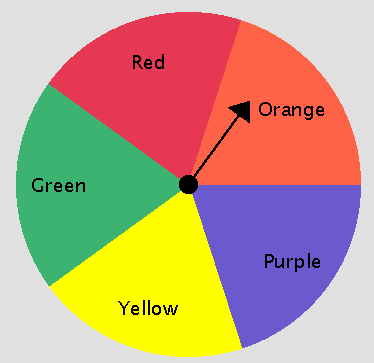|
Compound Probability Independent and Dependent Events
|

http://cemc2.math.uwaterloo.ca/mathfrog/images/spinner.gif
|
 http://cemc2.math.uwaterloo.ca/mathfrog/images/spinner.gif |
Links:
|
When more than one event is taking place with numerous possible outcomes, this is known as compound probability. You have studied and practiced simple probability in previous years, such as rolling a die. There are six possible outcomes for this single experiment. Compound probability will involve multiple events, such as rolling a die and flipping a coin. The sample space must depict all possible outcomes for both events combined. Another example of compound probability may be picking a card from a deck, not replacing it, then picking a second card. There is a difference between these two examples of compound probability. One is considered a dependent event and the other is considered an independent event. Can you predict which is which? Be prepared to discuss the differences in class! |